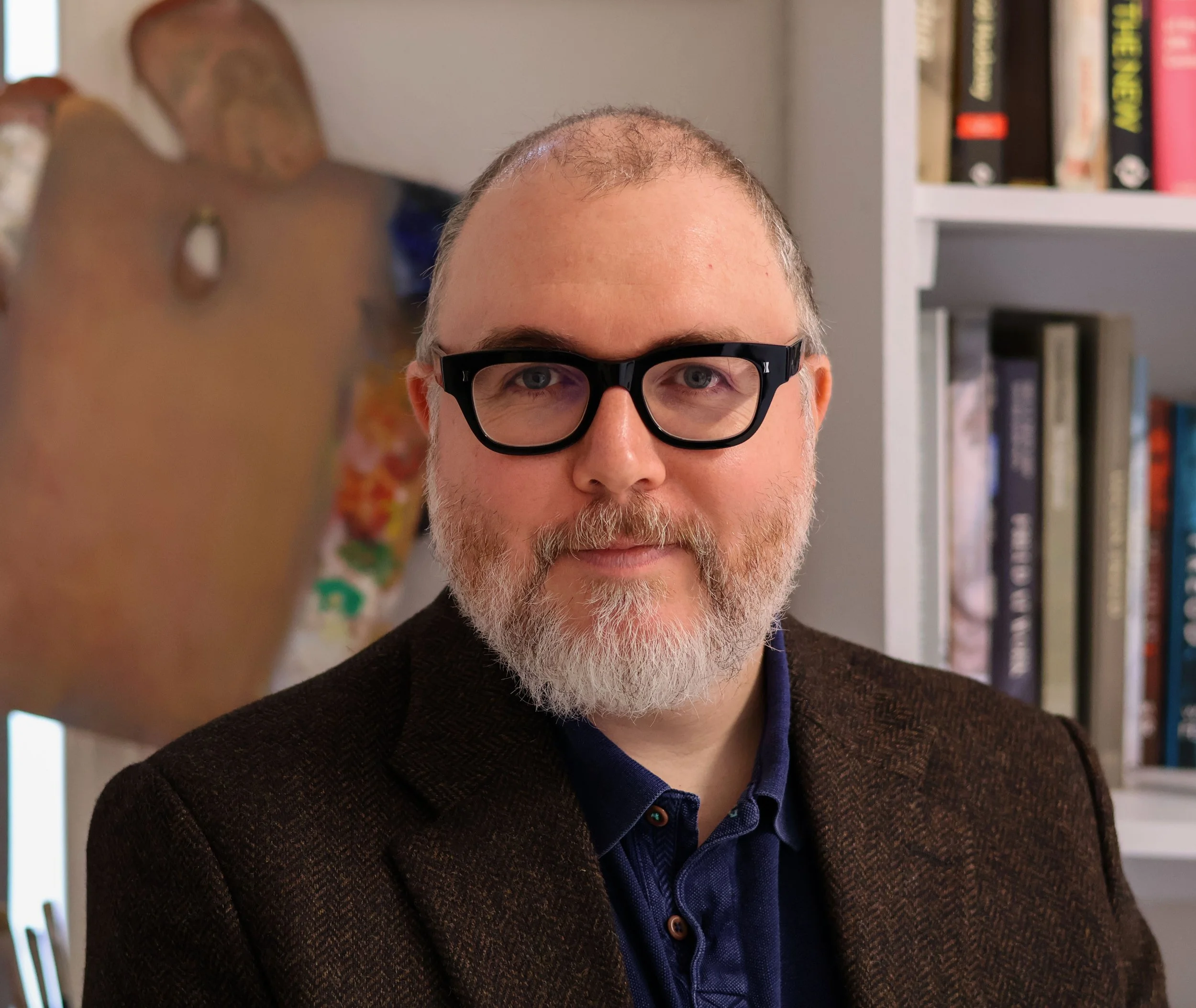Your Mentor - Richard Kitson
I began my professional art career in the summer of 2021 after ten years teaching in formal education. Before undertaking my practice on a full-time basis I painted as often as I could around my very demanding teaching job. I have experienced all the frustrations and emotions related to the desire to make art alongside the realities of supporting myself and my family day-to-day. As an art teacher I was always surrounded by people making art but as any teacher will tell you, teaching is only one part of the job and often I was simply too drained to paint after a long day in the classroom.
The turning point for me came in 2018 after my appearance on Sky Arts Portrait Artist of the Year which coincided with my first solo exhibition at the Cooper Gallery in Barnsley. I began to receive requests to deliver painting demonstrations for art clubs and societies in my local area which developed into requests to deliver workshops both locally and further afield. Gradually a new income stream began to reveal itself and all of a sudden, I was being hired as a workshop artist with my practice at the centre. As my freelance work began to increase, I found it more and more challenging to maintain my teaching post so I took the decision to take up my practice full time.
A year and a half into my full-time practice I began to realise that during the years I had spent teaching, I had never really thought about why I was doing what I was doing as an artist. I felt like a technician, someone who knew the mechanics of painting and could show others how to do it. I was faced with a big question; was there any art in the work I was making? This led me to undertaking my master’s degree at Leeds Arts University, seventeen years after completing my undergraduate degree. I felt the gap in my education keenly and was surrounded by mainly younger artists with more energy than myself. Thankfully my years as a teacher helped me feel like I was in familiar territory and I could block out the worst of the nerves. My nervousness about re-entering education was entirely the point, I had decided to put my practice on the line to see if I could find some meaning in my work, outside of being able to skilfully manipulate paint. A lot was riding on my MA and if I’m being honest, I felt like it could have been the end of my art career if I didn’t find something in my work beyond my ability to paint.
My MA experience did what I hoped it would do. For me it was the academic research element of the course that made the biggest difference. Through my research I discovered artists whose concerns aligned with my own alongside academics whose research opened up ideas that I have embedded into my practice. Transformative isn’t too grand a word to sum the whole experience up.
Having had time to reflect on my post graduate learning experience it really has had a profound effect on my attitude towards my practice. I feel more able to converse about my work, something I actively avoided beforehand. My renewed sense of confidence has impacted my work too and I will always refer to 2025 as a vintage year as my work found its way onto the walls of the National Portrait Gallery for the first time, as well as a third inclusion in the Royal Society of Portrait Painters annual exhibition at the Mall Galleries in London. I have experienced first-hand the impact that mentoring can have, in my case the mentoring of my MA tutors. A master’s degree isn’t for everyone of course but mentoring is something any artist who is serious about developing their practice should consider and if my experience can help you to discover your creative voice then it would be my privilege to help you do so.

